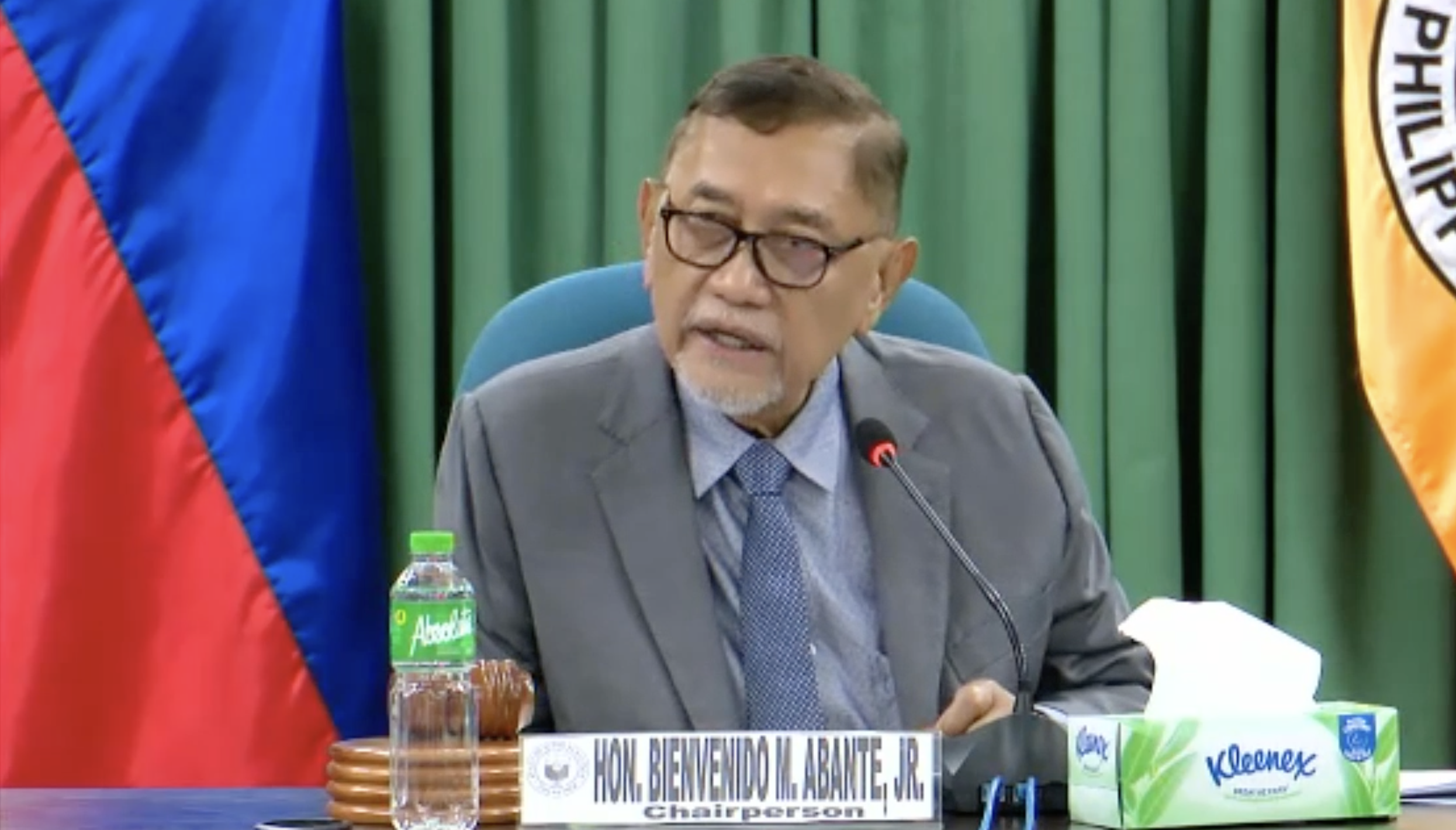Rep. Abante says House panel ‘will not in any way’ work with ICC

Manila Rep. Bienvenido Abante Jr., chair of the House Committee on Human Rights, delivers his speech during the start of the panel’s hearing on the extrajudicial killings during the administration of former President Rodrigo Duterte’s war on drugs on Tuesday, May 21, 2024. (Photo screengrab from House of Representatives YouTube livestream)
MANILA, Philippines — The House of Representatives panel on human rights conducting an inquiry on the extrajudicial killings (EJKs) during the administration of former President Rodrigo Duterte’s war on drugs “will not in any way” work with the International Criminal Court (ICC), a lawmaker said on Tuesday.
Manila Rep. Bienvenido Abante Jr., who chairs the lower chamber’s committee on human rights, made the clarification as the panel starts its hearing on the matter on Tuesday.
READ: Palace on ICC membership: It’s DOJ’s duty to ‘explore all legal avenues’
“I would like to make a declaration today that the committee on human rights will not in any way work with the ICC because I believe this should only be focused on the human rights violations in the local area that we have,” Abante said.
“Let the ICC be the one to conduct its own investigation on what they would like to have, but not with the committee on human rights,” he added.
In an earlier speech, Abante bared that the hearing would focus on three key issues such as the human rights violations committed against civilians during the bloody drug war, whether the state or law enforcement agencies adhered to its “obligations to respect, protect, and fulfill human rights during the implementation of the anti-illegal drugs campaign,” and to assess the adequacy of human rights laws and policies.
“We must thoroughly investigate whether human rights violations have been committed against civilians––particularly women, children, and the poor––during the anti-illegal drugs campaign.
The testimonies and evidence presented will help us understand this campaign’s impact on the most vulnerable members of our society, those who live at its margins,” the lawmaker said.
He added that the panel will also examine “the actions of law enforcement and other state actors to ensure that they are consistent with our constitutional and international commitments.”
“We must assess whether domestic and international human rights laws, instruments, and governmental policies have been adequate and responsive to the promotion, protection, and fulfillment of human rights obligations,” Abante stressed.
“Our evaluation will guide us in identifying gaps and recommending necessary reforms, including the passage of possible laws to address the issues we unearth in the course of our hearings,” he further said.
READ: House starts ‘tokhang’ probe; Duterte not invited
Reports revealed that Duterte’s brutal war on drugs resulted in the death of over 6,000 people, but some human rights organizations asserted that the number could reach up to 20,000.
Last year, President Ferdinand Marcos Jr acknowledged that “abuses” were committed and that the human rights situation became a cause for concern during the term of his predecessor.
In line with this, Marcos committed to employing a more comprehensive approach to tackle the illegal drug menace in the country, believing that drug dependence is a mental health problem.